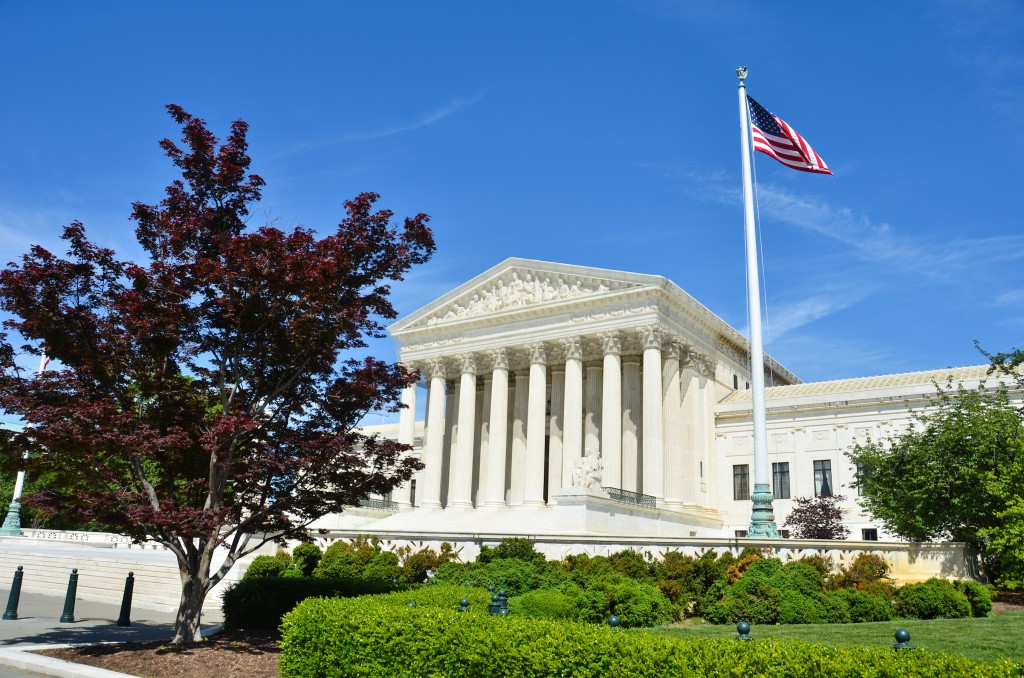
SCOTUS, SSM, RF, and Marriage Inequality
Earlier this month, by choosing not to act–thus letting stand the decisions of various federal appeals courts–the US Supreme Court in effect legalized same-sex marriage in 11 additional states, bringing the total to 30. Advocates of such marriages celebrated. Defenders of the historic definition of marriage were puzzled and very disappointed by the Court’s inaction.
Neither side pointed out that when same-sex marriage arrives by judicial decisions (and non-decisions), it hardly institutes marriage “equality.” Instead, such judicial action creates a legal environment and climate of opinion in which proponents of same-sex marriage triumph over those who are convinced that marriage can only be a union of one man and one woman.
How so? When the official definition of marriage is changed to include same-sex couples along with opposite-sex couples, the governmental demand that persons and organizations not discriminate in employment, housing, the provision of services, the renting of wedding facilities, the placement of children needing adoptive or foster parents, etc., results in requiring persons and organizations to act as if marriage really does extend to same-sex couples, despite their deep convictions to the contrary. Although these persons and organizations desire to remain true to their convictions, they may well find themselves faced with the choice of either abandoning a service to which they have been dedicated for decades (e.g., adoptions) or changing what they were convinced was right (e.g., placing kids only with opposite-sex married couples).
This isn’t marriage equality, but marriage inequality. Those convinced that marriage includes same-sex as well as opposite-sex couples will serve both kinds of couples without any conscience concerns; those convinced that marriage still is what it has been for millennia will discover that they can no longer act in harmony with that conviction but now must, in effect, change their view of marriage.
There is a solution, though both proponents of same-sex marriage and proponents of opposite-sex marriage are reluctant to admit it and work for it: adopting robust religious exemptions at the same time as same-sex marriage.
A true marriage equality law will protect religious persons and institutions from being forced to celebrate or assist in celebrating as marriage a relationship they are sure is not a marriage. For example, there would be no right to refuse to serve gay customers but also no obligation as a wedding planner to help the same-sex couple with its ceremony and reception. Such a law will also protect religious persons and institutions from being forced to treat as a marriage a relationship they are sure is not a marriage, for example no right to prevent a same-sex couple from adopting a child, but also no obligation as a faith-based adoption agency to place a child with such a couple.
There is a ready-made template for how states can promote and protect the rights both of those who believe in same-sex marriage and those who do not. It has been proposed to various governors and state legislatures by a blue-ribbon group of constitutional law experts, some of who are proponents of same-sex marriage and others who are not. Check it out, for example, in this memo that they wrote to a committee of the Hawaii legislature. This is a way to create a respectful public square.
To-date, no state has adopted all of the needed protections and most states have adopted only a few. Proponents of same-sex marriage, in the main, seem quite content to impose their views on those committed to historic marriage. Proponents of historic marriage, in the main, fight to keep their definition the only legal one for the whole state, regarding the creation of exemptions to be a strategy for losers.
Worse yet: when judges dictate that a state must redefine marriage to include same-sex couples, they need not, and do not, pay any attention whatsoever to the religious freedom consequences and the religious exemption solutions. They simply rule that, henceforth, same-sex couples may marry just as opposite-sex couples may-and if the state’s nondiscrimination requirements will now force those committed to historic marriage to have to act as if same-sex marriages are no different than opposite-sex marriages: tough luck.
Defenders of historic marriage, proponents of religious freedom, and advocates of fair treatment for everyone can go to court to seek protection for persons and organizations committed to historic marriage, and may win some protection. They can go to the legislature and ask it to create some protections. That might happen. Far better, though, for legislatures to build robust religious freedom protections right into marriage redefinition laws-and not to let the courts dictate marriage redefinition.
Further reading:
Douglas Laycock and Thomas Berg, “Protecting Same-Sex Marriage and Religious Liberty,” Virginia Law Review, 99:1 (2013).
Robin Fretwell Wilson, “The Calculus of Accommodation: Contraception, Abortion, Same-Sex Marriage, and Other Clashes Between Religion and the State,” Boston College Law Review, 53:1417 (2012).
Thomas Messner, “Same-Sex Marriage and Threats to Religious Freedom: How Nondiscrimination Laws Factor In,” Heritage Foundation Backgrounder, no. 2589 (July 29, 2011).
